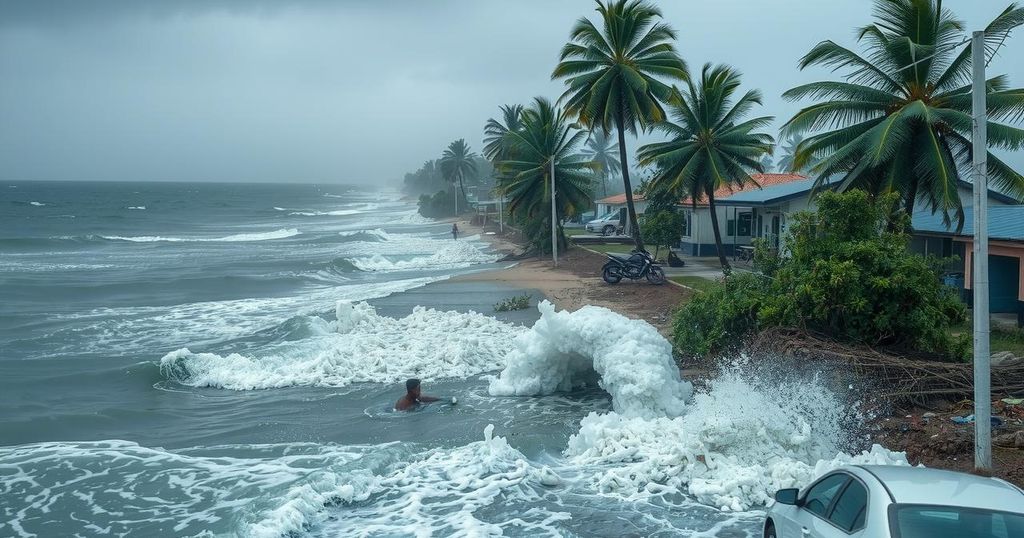Cyclone Chido Unleashes Devastation in Mozambique and Mayotte

Cyclone Chido struck Mozambique early Sunday, bringing destructive winds and heavy rain after causing significant damage and fatalities in Mayotte. Pemba faced intense impacts with communication disruptions reported. UNICEF is on the ground assisting the affected populations, amidst forecasts of further severe weather with strong winds and heavy rainfall expected in surrounding provinces.
Cyclone Chido made landfall in Mozambique early Sunday, unleashing severe winds and heavy rainfall after inflicting significant damage in the Indian Ocean territory of Mayotte, a French territory. The cyclone intensified while crossing the Mozambique Channel, reaching the coastline approximately 40 kilometers (25 miles) south of Pemba. Aderito Aramuge, the director of the National Institute of Meteorology, reported that Pemba had been significantly impacted by the cyclone, but communication with the city ceased at 7 a.m. (0500 GMT).
UNICEF has mobilized resources on site to assist the affected population, stating that numerous homes, schools, and health facilities had suffered extensive damage. The organization is working alongside the government to ensure that essential services remain operational amidst the crisis. The cyclone’s forecast predicts thunderstorms and wind gusts of up to 260 kilometers per hour affecting Cabo Delgado and Nampula provinces, accompanied by anticipated rainfall exceeding 250 millimeters (10 inches) within a 24-hour period. Videos emerging from Pemba depicted torrential rain and uprooted trees, while initial reports confirmed structural damage to various homes.
The cyclone’s impact was already devastating in Mayotte, where it resulted in the deaths of at least 14 individuals according to security sources on Sunday. The situation in Mozambique continues to evolve, and the full extent of Cyclone Chido’s damage is still under assessment as recovery efforts begin.
Cyclone Chido is a severe weather event that has affected the region of Mozambique, following its destructive path through Mayotte, where it resulted in multiple fatalities and widespread destruction. Mozambique’s topography and infrastructure are particularly vulnerable to cyclones due to the country’s position along the coast of the Indian Ocean. The cyclonic activity during this season often results in harsher weather conditions, including heavy rains and strong winds, posing significant risks to communities in the affected areas. Organizations such as UNICEF play a crucial role in providing immediate relief and support to those affected by such natural disasters, ensuring that their basic needs for shelter, healthcare, and education are met despite the disruptions caused by the storm.
In conclusion, Cyclone Chido has led to a significant humanitarian crisis, affecting both Mozambique and Mayotte. The fatalities and extensive damage reported in Mayotte highlight the cyclone’s severity, while the situation in Mozambique remains precarious as assessments of the damage continue. Emergency response efforts by organizations like UNICEF are essential in addressing the immediate needs of those affected and maintaining the continuity of critical services during this tumultuous period.
Original Source: www.barrons.com







